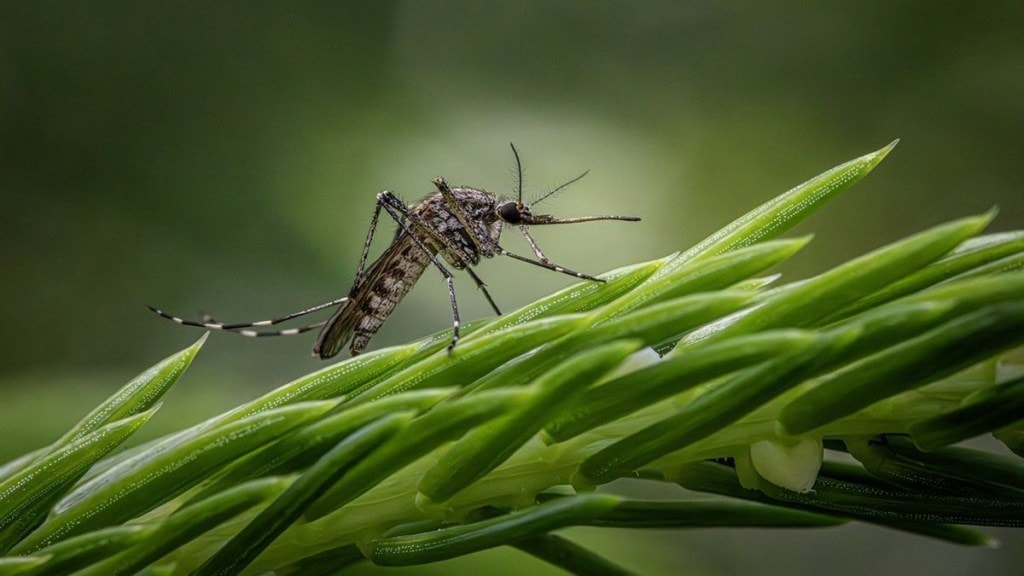The cases of Zika virus are increasing in Pune alarmingly. On Tuesday, the Pune Municipal Corporation (PMC) said two more pregnant women, one aged 18 and the other 19, from Pashan have tested positive for Zika virus.
The total count of pregnant women diagnosed with the infection has risen to eight. The total number of cases in the city now stands at 15, Indian Express reported.
The complications caused by the Zika virus are also worrisome. According to the World Health Organization (WHO), Zika virus infection during pregnancy is a cause of microcephaly and other congenital malformations in the infant, including limb contractures, high muscle tone, eye abnormalities and hearing loss and it is referred to as congenital Zika syndrome.
Zika virus infection can also cause Guillain-Barré syndrome, neuropathy and myelitis, particularly in adults and older children. Zika virus is transmitted primarily by Aedes mosquitoes, which bite mostly during the day. Do you know that Zika virus can also be transmitted sexually?
Sexual transmission of Zika virus
The Centers for Disease Control and Prevention (CDC) reveals that a person with Zika virus infection can transmit the virus to their partner(s) through vaginal sex, anal sex, and possibly oral sex.
“Sharing sex toys may also put someone at risk. Zika virus has been detected in semen, vaginal fluids, saliva, urine, and breast milk. There is no evidence that Zika virus can be transmitted through saliva during deep kissing,” CDC states.
According to the CDC, there is documented evidence of sexual transmission of Zika virus from male-to-female, male-to-male, and female-to-male sex partners.
Female-to-female sexual transmission has not yet been reported but is biologically plausible. Females with Zika infection may pass the virus to sex partners through vaginal fluids or menstrual blood, the US Health body warns.
“The Zika Virus, primarily transmitted through the bite of an infected Aedes mosquito, has also been confirmed to be sexually transmitted. Recent studies have shown that the virus can persist in semen for up to 54 days, which significantly extends the potential period for sexual transmission. This finding underscores the importance of incorporating safe sex practices and heightened awareness, especially if either partner has traveled to or resides in areas where Zika is prevalent. Understanding and mitigating sexual transmission routes are crucial steps in preventing the spread of this virus and protecting public health,” Dr Tejas Gundewar, chief male-female fertility consultant, Ruby Hall Clinic told Financial Express.com.
According to Dr. Gundewar, the virus can be transmitted from an infected man to his female or male partner during vaginal intercourse.
“Similar to vaginal sex, Zika can be transmitted from an infected individual to their partner during anal intercourse. There is also potential, albeit lower, for Zika virus transmission through oral sex involving an infected partner,” he told Financial Express.com.
Zika virus in semen
Limited data suggest the incidence of Zika virus RNA shedding in semen and its persistence after infection are likely similar for symptomatic and asymptomatic men infected with Zika virus, CDC reveals.
According to the CDC, people with symptomatic illness have transmitted Zika virus before they had symptoms, while they had symptoms, and after symptoms resolved.
Using condoms or abstinence is recommended to protect sex partners concerned about Zika virus infection, CDC states.
Dr. Gundewar revealed that the Zika virus can be detected in semen for an extended period, up to 54 days, and sometimes even longer after initial infection. “This persistence means that even if a man shows no symptoms, he could still transmit the virus to his sexual partner,” he told Financial Express.com.
A significant challenge in controlling the spread of Zika through sexual transmission is that many infected individuals may be asymptomatic, he said. This means they show no signs of illness and may unknowingly infect their partners, Dr. Gundewar claimed.
How to prevent sexual transmission of Zika virus?
Some of the preventive measures include:
- Condom Use Consistent and correct use of condoms can significantly reduce the risk of sexual transmission of the Zika virus.
- Abstinence: Couples planning pregnancy should consider abstaining from sex or engaging in protected sex if there’s a possibility of either partner having been exposed to Zika.
- Communication: Maintaining open discussions about potential exposure to Zika, especially if either partner has traveled to an area with active Zika transmission, is crucial
- Men and women who have traveled to areas with active Zika transmission should be mindful of potential sexual transmission upon returning home.
“It’s recommended that men use condoms or abstain from sex for at least six months, while women should consider at least eight weeks of precautions. This multifaceted approach to understanding and preventing sexual transmission of Zika is vital for controlling its spread and protecting vulnerable populations, particularly pregnant women and their unborn children. Public health messaging and education remain critical in mitigating the impact of this transmission mode,” Dr. Gundewar told Financial Express.com.

